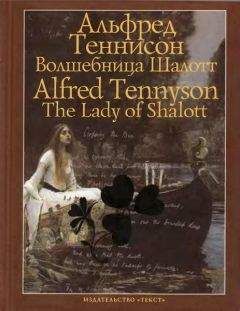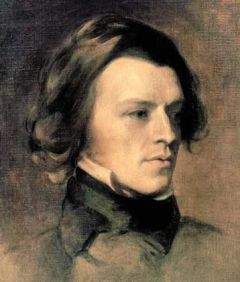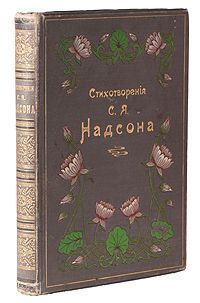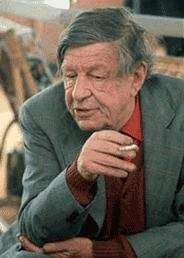Г. Кружков
‘SEE WHAT A LOVELY SHELL’
I
See what a lovely shell,
Small and pure as a pearl,
Lying close to my foot,
Frail, but a work divine,
Made so fairily well
With delicate spire and whorl,
How exquisitely minute,
A miracle of design!
II
What is it? a learned man
Could give it a clumsy name.
Let him name it who can,
The beauty would be the same.
III
The tiny cell is forlorn,
Void of the little living will
That made it stir on the shore.
Did he stand at the diamond door
Of his house in a rainbow frill?
Did he push, when he was uncurl’d,
A golden foot or a fairy horn
Thro’ his dim water-world?
IV
Slight, to be crush’d with a tap
Of my finger-nail on the sand,
Small, but a work divine,
Frail, but of force to withstand,
Year upon year, the shock
Of cataract seas that snap
The three decker’s oaken spine
Athwart the ledges of rock,
Here on the Breton strand!
I
Вот, на песке морском,
Раковина, посмотри —
Крохотная вещица,
Не крупней ноготка,
С тоненьким завитком,
Розовая внутри,
Как чудесно искрится,
Радужна и хрупка!
II
Мог бы назвать ученый
Кличкой ее мудреной,
С книжного взяв листа;
Но и не нареченной
Имя ей — красота.
III
Тот, кто в ней обитал,
Видно, покинул в тревоге
Домик уютный свой;
Долго ли он простоял
Возле своих дверей,
Рожками шевеля
На жемчужном пороге,
Прежде, чем с головой
Кануть в простор морей?
IV
Тонкая — даже дитя
Пяткой его сломает,
Крохотная — но как чудно,
Дивно сотворена!
Хрупкая — но волна,
Что поднимает шутя
Трехмачтовое судно
И о риф разбивает, —
Сладить с ней не вольна.
Г. Кружков
I waited for the train at Coventry;
I hung with grooms and porters on the bridge,
To watch the three tall spires; and there I shaped
The city’s ancient legend into this:
Not only we, the latest seed of Time,
New men, that in the flying of a wheel
Cry down the past, not only we, that prate
Of rights and wrongs, have loved the people well,
And loathed to see them overtax’d; but she
Did more, and underwent, and overcame,
The woman of a thousand summers back,
Godiva, wife to that grim Earl, who ruled
In Coventry: for when he laid a tax
Upon his town, and all the mothers brought
Their children, clamouring, ‘If we pay, we starve!’
She sought her lord, and found him, where he strode
About the hall, among his dogs, alone,
His beard a foot before him, and his hair
A yard behind. She told him of their tears,
And pray’d him, ‘If they pay this tax, they starve.’
Whereat he stared, replying, half-amazed,
‘You would not let your little finger ache
For such as these?’ — ‘But I would die,’ said she.
He laugh’d, and swore by Peter and by Paul:
Then fillip’d at the diamond in her ear;
‘Oh ay, ay, ay, you talk!’ — ‘Alas!’ she said,
‘But prove me what it is I would not do.’
And from a heart as rough as Esau’s hand,
He answer’d, ‘Ride you naked thro’ the town,
And I repeal it;’ and nodding, as in scorn,
He parted, with great strides among his dogs.
So left alone, the passions of her mind,
As winds from all the compass shift and blow,
Made war upon each other for an hour,
Till pity won. She sent a herald forth,
And bade him cry, with sound of trumpet, all
The hard condition; but that she would loose
The people: therefore, as they loved her well,
From then till noon no foot should pace the street,
No eye look down, she passing; but that all
Should keep within, door shut, and window barr’d.
Then fled she to her inmost bower, and there
Unclasp’d the wedded eagles of her belt,
The grim Earl’s gift; but ever at a breath
She linger’d, looking like a summer moon
Half-dipt in cloud: anon she shook her head,
And shower’d the rippled ringlets to her knee;
Unclad herself in haste; adown the stair
Stole on; and, like a creeping sunbeam, slid
From pillar unto pillar, until she reach’d
The gateway; there she found her palfrey trapt
In purple blazon’d with armorial gold.
Then she rode forth, clothed on with chastity:
The deep air listen’d round her as she rode,
And all the low wind hardly breathed for fear.
The little wide-mouth’d heads upon the spout
Had cunning eyes to see: the barking cur
Made her cheek flame: her palfrey’s footfall shot
Light horrors thro’ her pulses: the blind walls
Were full of chinks and holes; and overhead
Fantastic gables, crowding, stared: but she
Not less thro’ all bore up, till, last, she saw
The white-flower’d elder-thicket from the field
Gleam thro’ the Gothic archway in the wall.
Then she rode back, clothed on with chastity:
And one low churl, compact of thankless earth,
The fatal byword of all years to come,
Boring a little auger-hole in fear,
Peep’d-but his eyes, before they had their will,
Were shrivell’d into darkness in his head,
And dropt before him. So the Powers, who wait
On noble deeds, cancell’d a sense misused;
And she, that knew not, pass’d: and all at once,
With twelve great shocks of sound, the shameless noon
Was clash’d and hammer’d from a hundred towers,
One after one: but even then she gain’d
Her bower; whence reissuing, robed and crown’d,
To meet her lord, she took the tax away
And built herself an everlasting name.
Я в Ковентри ждал поезда, толкаясь
В толпе народа по мосту, смотрел
На три высоких башни — и в поэму
Облек одну из древних местных былей.
Не мы одни — плод новых дней, последний
Посев Времен, в своем нетерпеливом
Стремленье вдаль злословящий Былое, —
Не мы одни, с чьих праздных уст не сходят
Добро и Зло, сказать имеем право,
Что мы народу преданны: Годива,
Супруга графа Ковентри, что правил
Назад тому почти тысячелетье,
Любила свой народ и претерпела
Не меньше нас. Когда налогом тяжким
Граф обложил свой город, и пред замком
С детьми столпились матери, и громко
Звучали вопли: «Подать нам грозит
Голодной смертью!» — в графские покои,
Где граф, с своей аршинной бородой
И подсаженной гривою, по залу
Шагал среди собак, вошла Годива
И, рассказав о воплях, повторила
Мольбу народа: «Подати грозят
Голодной смертью!» Граф от изумленья
Раскрыл глаза. «Но вы за эту сволочь
Мизинца не уколете!» — сказал он.
«Я умереть согласна!» — возразила
Ему Годива. Граф захохотал,
Петром и Павлом громко побожился,
Потом по бриллиантовой сережке
Годиве щелкнул: «Россказни!» — «Но чем же
Мне доказать?» — ответила Годива.
И жесткое, как длань Исава, сердце
Не дрогнуло. «Ступайте, — молвил граф, —
По городу нагая — и налоги
Я отменю», — насмешливо кивнул ей
И зашагал среди собак из зала.
Такой ответ сразил Годиву. Мысли,
Как вихри, закружились в ней и долго
Вели борьбу, пока не победило
Их Состраданье. В Ковентри герольда
Тогда она отправила, чтоб город
Узнал при трубных звуках о позоре,
Назначенном Годиве: только этой
Ценою облегчить могла Годива
Его удел. Годиву любят, — пусть же
До полдня ни единая нога
Не ступит за порог и ни единый
Не взглянет глаз на улицу: пусть все
Затворят двери, спустят в окнах ставни
И в час ее проезда будут дома.
Потом она поспешно поднялась
Наверх, в свои покои, расстегнула
Орлов на пряжке пояса — подарок
Сурового супруга — и на миг
Замедлилась, бледна, как летний месяц,
Полузакрытый облачком… Но тотчас
Тряхнула головой и, уронивши
Почти до пят волну волос тяжелых,
Одежду быстро сбросила, прокралась
Вниз по дубовым лестницам — и вышла,
Скользя, как луч, среди колонн, к воротам,
Где уж стоял ее любимый конь,
Весь в пурпуре, с червонными гербами.
На нем она пустилась в путь — как Ева,
Как гений целомудрия. И замер,
Едва дыша от страха, даже воздух
В тех улицах, где ехала она.
Разинув пасть, лукаво вслед за нею
Косился желоб. Тявканье дворняжки
Ее кидало в краску. Звук подков
Пугал, как грохот грома. Каждый ставень
Был полон дыр. Причудливой толпою
Шпили домов глазели. Но Годива,
Крепясь, все дальше ехала, пока
В готические арки укреплений
Не засияли цветом белоснежным
Кусты густой цветущей бузины.
Тогда назад поехала Годива —
Как гений целомудрия. Был некто,
Чья низость в этот день дала начало
Пословице: он сделал в ставне щелку
И уж хотел, весь трепеща, прильнуть к ней,
Как у него глаза оделись мраком
И вытекли, — да торжествует вечно
Добро над злом. Годива же достигла
В неведении замка — и лишь только
Вошла в свои покои, как ударил
И загудел со всех несметных башен
Стозвучный полдень. В мантии, в короне
Она супруга встретила, сняла
С народа тяжесть податей — и стала
С тех пор бессмертной в памяти народа.
И. Бунин




